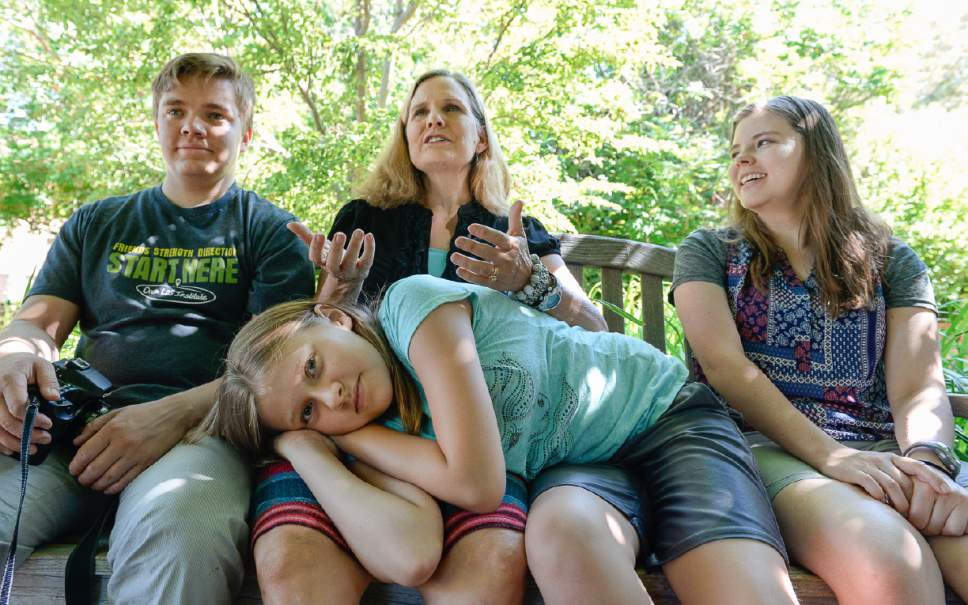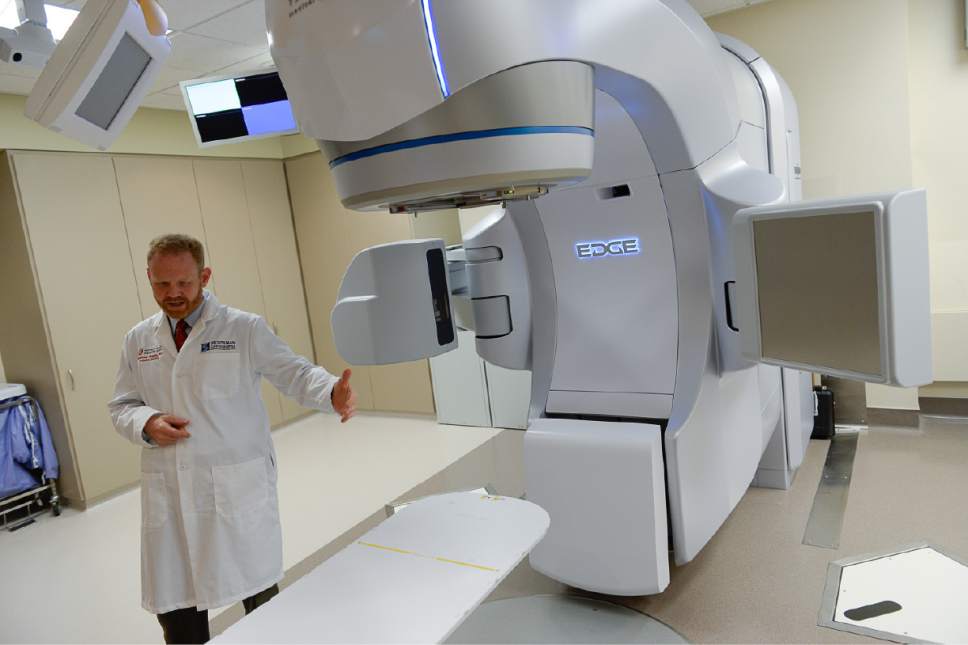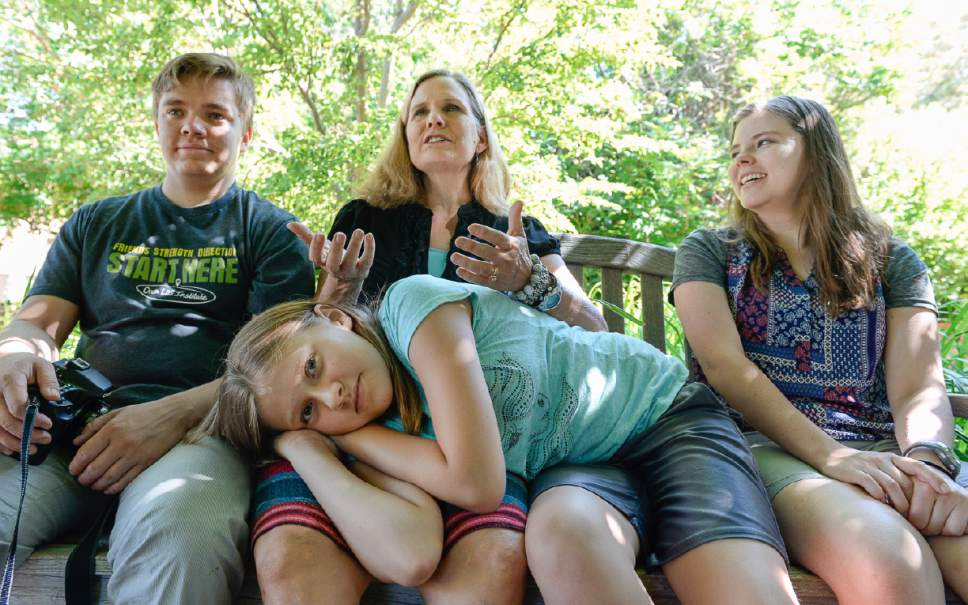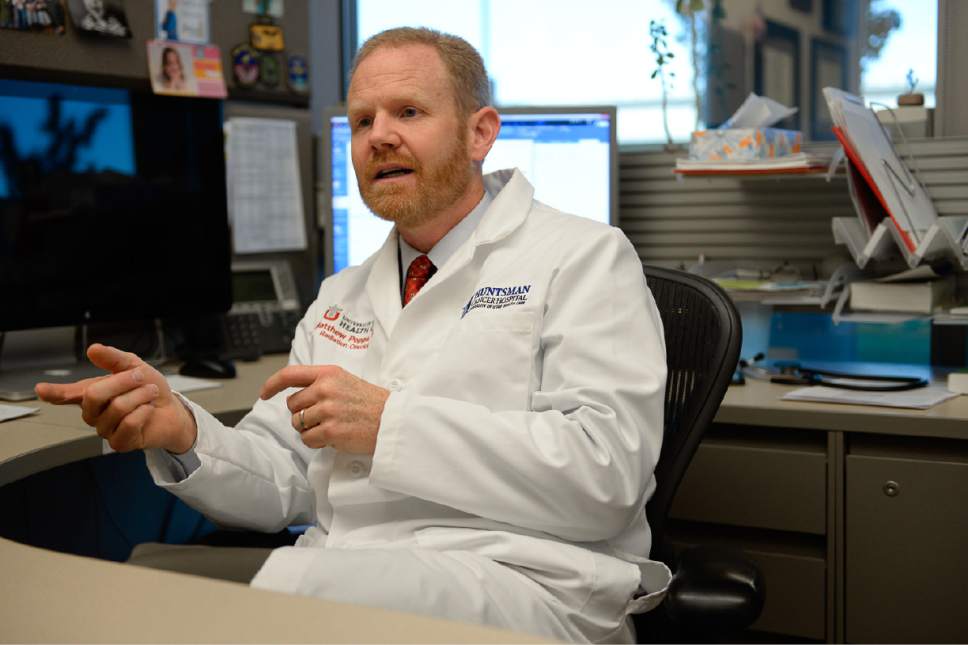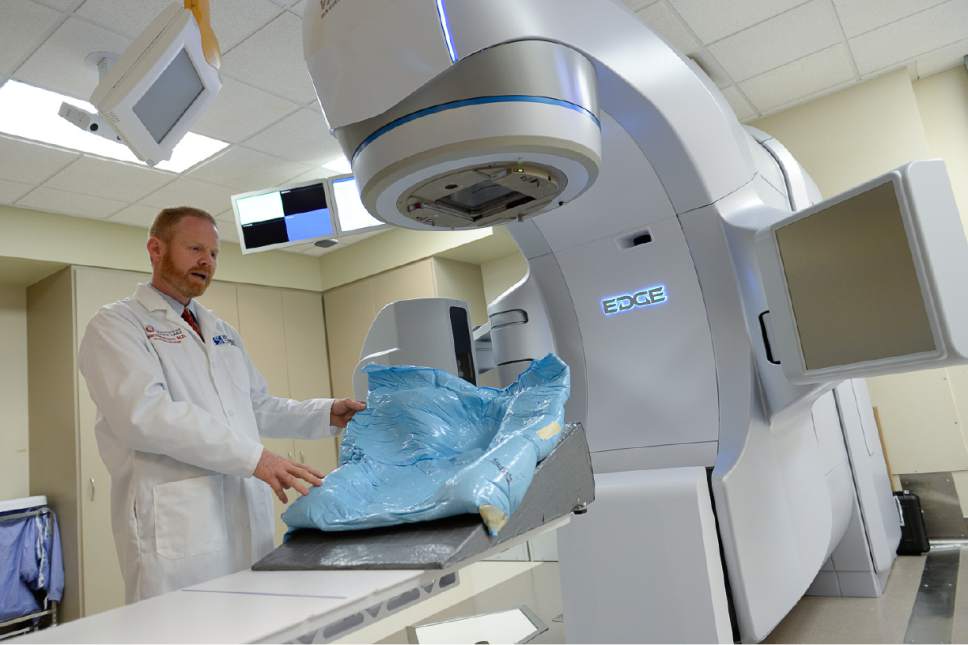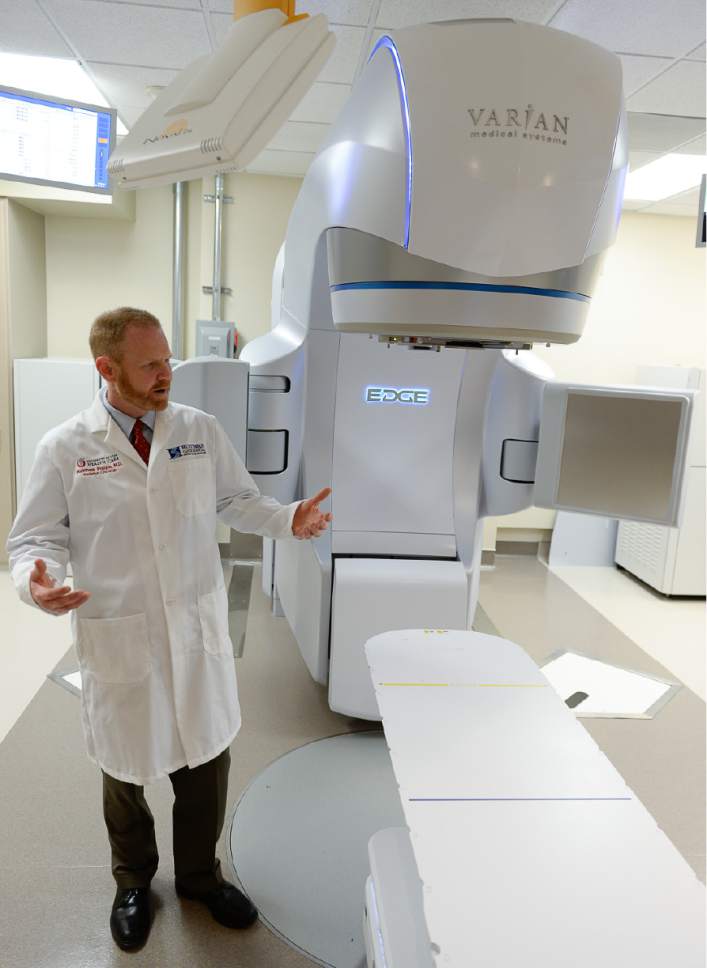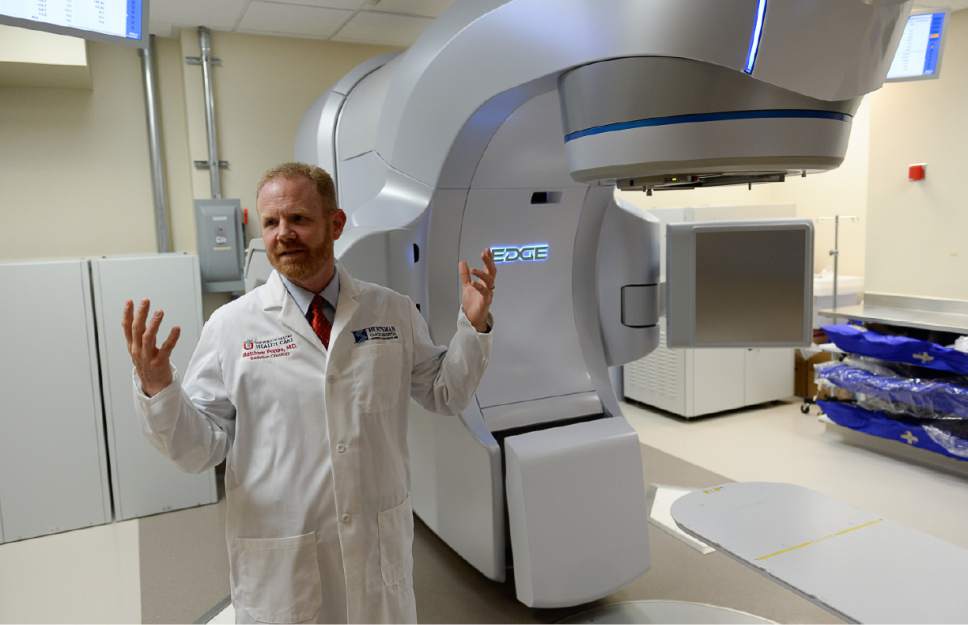This is an archived article that was published on sltrib.com in 2017, and information in the article may be outdated. It is provided only for personal research purposes and may not be reprinted.
By the time Katie Peterson joined a Huntsman Cancer Institute clinical trial in 2014, she knew the route to the hospital from her Orem home by heart.
She had made that one-hour drive for every appointment, every surgery and every round of chemotherapy day after day, week after week following her diagnosis with stage 3 breast cancer earlier that year.
The trip "was long, but I only ever felt comfortable going to the institute," said Peterson, now 54. "The hospital near my home just wasn't the same."
But as she readied for a new round of five-day-a-week radiation treatments, the toll of that travel time was about to get worse. So when doctors mentioned a clinical trial that would reduce her treatment days by half, Peterson jumped at the opportunity, she said.
The study, conducted by Huntsman Cancer Institute (HCI) and Rutgers Cancer Institute of New Jersey, has found that higher doses of radiation administered over the course of fewer treatments often yields good outcomes for women who received a mastectomy — a surgical operation to remove a breast — stemming from their diagnoses.
"These women did as well, if not better than expected, in regards to their treatment side effects and low breast cancer recurrence rates," said Matthew Poppe, the study's lead investigator at HCI.
Study results were published recently in the Journal of Clinical Oncology.
The discovery is important, Poppe said, because reducing the duration of treatment could have enormous benefits, both financial and emotional, for patients and their families. The prevailing standard of care for radiation treatment in such circumstances now is five days a week for six weeks.
"There will be significant cost savings in not having to miss three extra weeks of work," Poppe said. "There's less strain on their family, less time away from home, less financial out-of-pocket costs."
The shorter course of treatment allowed Peterson to spend more time with her husband and six children, she said, and saved her a lot of money on gas.
The abbreviated treatment time "made radiation the easiest part of the whole experience," Peterson said.
For the last five years, physicians at HCI have offered shorter courses of radiation for women with early stage breast cancer, who require a lumpectomy — a surgical procedure to remove a lump from a breast — instead of a mastectomy.
But Poppe said there are more questions about this shorter treatment course in patients who have mastectomies, given the potential complications with their breast reconstruction. Additionally, women who undergo mastectomies in the course of treatment typically have advanced stage breast cancer that has spread to their lymph nodes, too.
But when researchers followed patients for about 32 months after their radiation, Poppe said they found the shorter treatment was safe and effective.
Of the nearly 70 study participants, only two had their cancer reoccur and about 25 percent of them had breast reconstruction complications, such as infections, Poppe said. This is on par with what occurs when the longer course of treatment is used, he added.
So, Poppe now will lead a larger trial to directly compare the shorter course of radiation to the longer one, which is necessary to show the latter is just as safe and effective. Starting in October, Poppe will begin enrolling about 900 patients from HCI and other cancer centers in the U.S. and Canada.
He said he expects it to take four or five years before researchers have a definitive answer, but after that it could become the standard of care.
Peterson is thankful she was able to participate in the trial, she said, because it put her on the path to recovery sooner.
And as she walked through Red Butte Garden in Salt Lake City with three of her kids Friday, she couldn't stop talking about how great she feels. She can even play tennis again, though she joked that she's no longer very good.
"You can still beat me," her daughter Serena Peterson replied with a laugh.
Twitter @alexdstuckey


